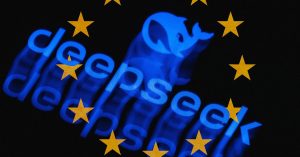The nature of professional interactions is undergoing a transformation, signified by the emergence of workplace champions dedicated to promoting efficient meetings, indicating a paradigm shift in organizational culture. From roles such as meeting scientists and meeting doctors gaining prominence to the growing academic exploration around the topic, it’s evident that mastering the art of effective meetings is pivotal in the contemporary work landscape.
Workplace Champions: Pioneering the Transformation of Meetings
Meetings have evolved from being routine events to platforms demanding impactful outcomes. Workplace champions, reminiscent of meeting scientists or meeting doctors, are at the helm of this revolution. With expertise spanning both physical and virtual domains, they are sculpting a new era of meetings defined by clarity, active participation, and concrete results. These experts aim to overturn the oft-criticized meeting culture into a springboard for innovation, collaboration, and efficiency. Through meticulous analysis and restructuring, they ensure every team gathering serves a defined purpose and delivers value.
Parallel to the corporate transformation, academia is actively exploring professional interactions. The influx of theses, case studies, and research papers indicates the increasing academic gravitas attached to the topic. Universities—including my own, the University of Reading—are not only investigating contemporary meeting effectiveness but are also forecasting the evolving dynamics of collaborative work. And so, from the nuances of virtual meetings to the promise of hybrid meetings, the academic realm is abuzz with fresh insights. This scholarly attention bridges the chasm between theoretical constructs and actionable strategies, offering businesses empirical-backed approaches to enhance their meeting methodologies.
While virtual meetings have become quintessential tools, the potential of hybrid meetings—an amalgamation of in-person and virtual elements—is garnering attention. These formats capture the advantages of digital platforms yet retain the essence of direct interactions. As more businesses integrate this model, academic scrutiny will further intensify, paving the way for refined best practices and discerning potential challenges.
That is the view of Joe Allen, a professor of industrial and organizational psychology at the University of Utah, who oversees the Center for Meeting Effectiveness situated in the Rocky Mountain Center for Occupational and Environmental Health. Allen is highly regarded for his pioneering work in meeting science; by 2020, an impressive 25% of all research in meeting science was attributed to him. However, these numbers only touch the surface of his achievements as it’s not just the quantity but the depth and breadth of his research that truly distinguishes him; over a span of ten years, his research projects attracted more than $10 million in external funding, and his outstanding contributions to the field have been recognized with several awards, including the 2020 Emerald Literati Award and the 2019 Best Quantitative Paper Award.
“The core of my research lies in optimizing workplace meetings. Given that roughly 55 million meetings occur daily in the U.S., with a substantial portion being perceived as ineffective, I felt compelled to discern the underlying issues and propose solutions,” Allen said in an interview with me. His landmark study, The Key Features of Workplace Meetings, coalesces scientific insights on meetings, providing both a foundational reference for future investigations and actionable insights for immediate applications.
In the wake of the pandemic, the shift in workplace paradigms birthed the “suddenly hybrid” concept, highlighting the emergence of a blended work environment. Allen, recognizing this evolution, broadened his research spectrum: Creativity in Virtual Teams delves into the impact of digital tools on team creativity in this new-age hybrid setting. Moreover, Allen’s investigative study on acoustic markers sheds light on the potential of technology to gauge the effectiveness of meetings in such hybrid models.
Allen’s perspective is that the amplified emphasis on meetings reflects the transformative workplace landscape. For him, meetings aren’t just obligatory appointments but vital junctions for fostering collaboration, spurring innovation, and anchoring decisive actions. The Covid-19 era, characterized by a surge in remote work, accentuates the importance of refining virtual meeting dynamics. With tens of millions of meetings daily in the U.S., and many falling short of their intended purpose, the need for targeted research and tangible solutions is paramount. Allen’s steadfast dedication to meeting science aims to address these concerns, arming enterprises with strategies to thrive.
In our current digitally-driven age, professional meetings’ role and effectiveness are at the forefront of organizational discourse. With visionaries like Allen leading the charge and providing invaluable insights, the interplay between scholarly findings and practical application is increasingly apparent. The combined endeavors of thought leaders and researchers converge on a mutual goal: transforming meetings into powerful instruments for innovation, teamwork, and institutional achievement. Looking to the future, it’s evident that the manner in which we approach and conduct meetings will perpetually refine, steered by persistent research and an unyielding quest for workplace excellence.
Read the full article here










